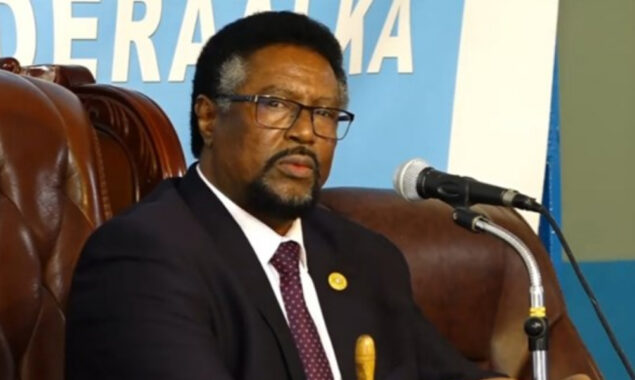
In a drawn-out process that ended in the early hours of Thursday, Somalia’s parliament chose a senior politician as speaker of the lower house, as the fragile country moves closer to conducting a postponed presidential election.
The election has been delayed for more than a year, and the process has been plagued by fatal violence and a power struggle between the incumbent president and the prime minister.
Following the election of the upper house speaker on Tuesday, MPs in the lower house elected Sheikh Adan Mohamed Nur, also known as Sheikh Adan Madobe, as speaker in a two-round voting procedure.
The voting was held in a tent within Mogadishu’s strongly guarded airport complex under heavy security, following a flurry of bombings in recent weeks by Al-Shabaab Islamists who have been fighting the government for over a decade.
Madobe, 66, received 163 votes out of the 252 votes cast by legislators. He was formerly the Speaker of the House from 2007 to 2010.
He is not known to be associated with either President Mohamed Abdullahi Mohamed or Prime Minister Mohamed Hussein Roble, who have been at odds in recent months over the electoral process and security issues.
The president, known as Farmajo, thanked Madobe and said in a statement that he hoped his victory “becomes a beginning point for a larger shift that rescues the country.”
Abdi Hashi Abdullahi, 76, was re-elected as speaker of the upper house on Tuesday. The date for the presidential election will now be established by Parliament.
Somalia was supposed to pick a new president last year, but it did not do so before Farmajo’s term expired in February 2021.
Farmajo attempted to extend his control via decree, resulting in deadly street fighting in Mogadishu.
Under international pressure, he selected Roble to seek consensus on a course of action. However, their differences have stymied progress and fueled worries of additional instability in the nation, which is already dealing with Al-Shabaab and the possibility of starvation.
Furthermore, a critical IMF three-year $400 million (380 million euro) financial aid package for Somalia would expire immediately in mid-May if a new administration is not in place to support planned reforms.
– ‘Exercise restraint’ –
Somalia’s international supporters advised on Wednesday that “political tensions and security events must not be allowed to derail (the election’s) final phases.”
“We urge all Somali leaders to display patience, address issues via compromise, and avoid any escalation of events.”
In the last 50 years, Somalia has not had a one-person, one-vote election.
Instead, polls follow a complicated indirect format in which state legislatures and clan delegates select parliamentarians for the national parliament, who then select the president.
The election delays have alarmed Somalia’s international supporters, who have warned that the instability will divert attention away from the battle against Al-Shabaab.
Al-Qaeda-affiliated terrorists often assault civilian, military, and government targets in Somalia’s capital and elsewhere.
The jihadists ruled Mogadishu until 2011, when they were driven out by an African Union army, but they still control territory in the surrounding area.
Read More News On
Catch all the International News, Breaking News Event and Latest News Updates on The BOL News
Download The BOL News App to get the Daily News Update & Follow us on Google News.




